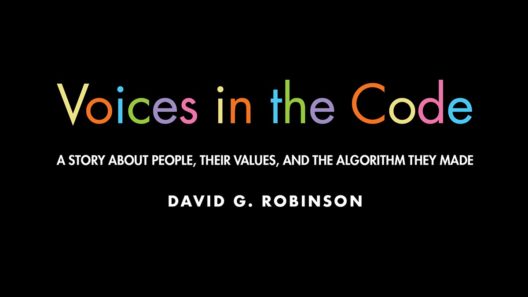Public sector use of data and algorithms
Building evidence on how data-driven technologies are shaping public services, and supporting approaches to public-sector algorithm accountability.
The context
Governments around the world are increasingly turning to data-driven technologies and algorithms to automate or support decision-making and deliver public services. These tools are being used in the delivery of social care and welfare provision, the detection of fraud, policing and surveillance, and urban planning.
Increased data collection and linkage is also being used to shape more targeted, predictive public services and streamline approaches, as governments seek to improve service provision, increase efficiency or lower costs. Such approaches were accelerated during the COVID-19 pandemic and have been posited as a key mechanism for recovery and growth in its aftermath.
While new data-driven tools have the potential to transform how public services are run and how citizens interact with them, they also pose political, economic, legal and ethical questions. There is also growing evidence to suggest that algorithmic systems in public-service delivery frequently lack accountability and transparency in their implementation, as well as around decisions about whether and why to use them. The 2020 Ofqual A-level algorithm, which triggered protests and a rallying cry to ’fuck the algorithm’, is one example of this.
Little is authoritatively known about how data and algorithmic decision-making systems are evolving in public services and government. New measures to track, examine and assess the impact of data-driven tools in public service provision are starting to emerge, as exemplified by AlgorithmWatch’s authoritative study of automated decision-making tools across Europe. We are also seeing attempts to improve accountability in the use and provision of algorithms in the public sector, as evidenced in our joint global study with AI Now and the Open Government Partnership. However, we remain in the ‘first wave’ stage of transparency and accountability measures.
Ada’s approach
Our research aims to increase the visibility of public sector use of data and algorithms with a view to encouraging informed scrutiny of such systems. We also aim to co-create and pilot potential new approaches to improve transparency, assess impact, increase public participation and improve accountability. Through primary research with public-sector partners; secondary analysis and synthesis of emerging trends; and engagement with the public, this programme aims to support greater understanding of the uses and impacts of data-driven tools in the public sector. This will enable us to develop recommendations for policymakers and public-sector practitioners on how to use and govern data and data-driven technologies. Examples of our work include:
Building evidence and case studies
- We are undertaking ethnographically-informed case study research on the use of predictive analytics by one London local authority, with a view to isolating key lessons, best practices and concerns about the deployment of algorithmic decision-making tools in public service provision.
Defining key terms, synthesis and conducting high-level surveys of the field
- We examined key terms such as ‘transparency’ and ‘explainability’, and have produced an explainer on a range of transparency mechanisms available in the public sector domain.
- In collaboration with AI Now and the Open Government Partnership, we co-published a survey of the first wave of algorithmic accountability policy mechanisms in the public sector.
Public engagement and deliberation to understand public expectations about the use of data and algorithms in the public sector
- We have collaborated with the Geospatial Commission to deliver a public dialogue on the use of location data for public service delivery.
The impact we seek
Our Public sector use of data and AI programme enables us to achieve our strategic goals in the following ways:
- We are rebalancing power over data and AI through exploring tools and mechanisms to improve public-sector algorithmic accountability.
- We are amplifying the voices of people by creating participatory mechanisms for citizens to contribute to the design of public-sector algorithmic and data-driven approaches.
Projects

Procurement of AI and data-driven systems in local government
The role of procurement in ensuring that AI and data-driven systems used in local government work for people and communities

Education and AI
The role of AI and data-driven technologies in primary and secondary education in the UK

Gender and AI
How does the use of data-driven systems exacerbate inequalities in access to primary healthcare for transgender and non-binary people in the UK?

Foundation models in the public sector
A rapid review of the development and deployment of foundation models in the UK public sector

Data analytics in local government
What are the challenges faced by local authorities in deploying data analytics in public services?
Reports
Algorithmic accountability for the public sector
Learning from the first wave of policy implementation
Transparency mechanisms for UK public-sector algorithmic decision-making systems
A review of existing UK mechanisms for transparency, and their contribution to making public information relating to the implementation of algorithmic
Events

Voices in the Code: A Story about People, Their Values, and the Algorithm They Made
David G. Robinson in conversation with Professor Shannon Vallor

Working at Ada: about us and our current vacancies
We will share some more information on Ada's research interests, our roles, the hiring process at Ada, and what life as an Ada researcher is like.

Building public confidence in data-driven systems
Findings of the Office for Statistics Regulation review into the 2020 exam results algorithm, and why public confidence in data-driven systems matters

What forms of mandatory reporting can help achieve public-sector algorithmic accountability?
A look at transparency mechanisms that should be in place to enable us to scrutinise and challenge algorithmic decision-making systems

Algorithmic decision-making and predictive analytics in children’s social care
A one-day event to discuss the use of data analytics for delivering services within the remits of children’s social care.
From the Ada blog

The Ada Lovelace Institute in 2022
Ada’s Director Carly Kind reflects on the last year and looks ahead to 2023
- AI and data ethics
- AI policy
- Algorithm impact assessment
- Biometric technologies
- Biometrics
- Biometrics regulation
- Contact tracing
- Data governance
- Data regulation
- Digital vaccine passports
- Enabling a responsible AI ecosystem
- Ethics and accountability in practice
- Europe
- Facial recognition technology
- Health data
- Health data and COVID-19 tech
- Health technology
- JUST AI
- Public attitudes
- Public-sector use of data & algorithms
- Recommendation systems
- The future of regulation

How charting public perspectives can show the way to unlocking the benefits of location data
A review of existing research on public attitudes towards location data and related ethical considerations